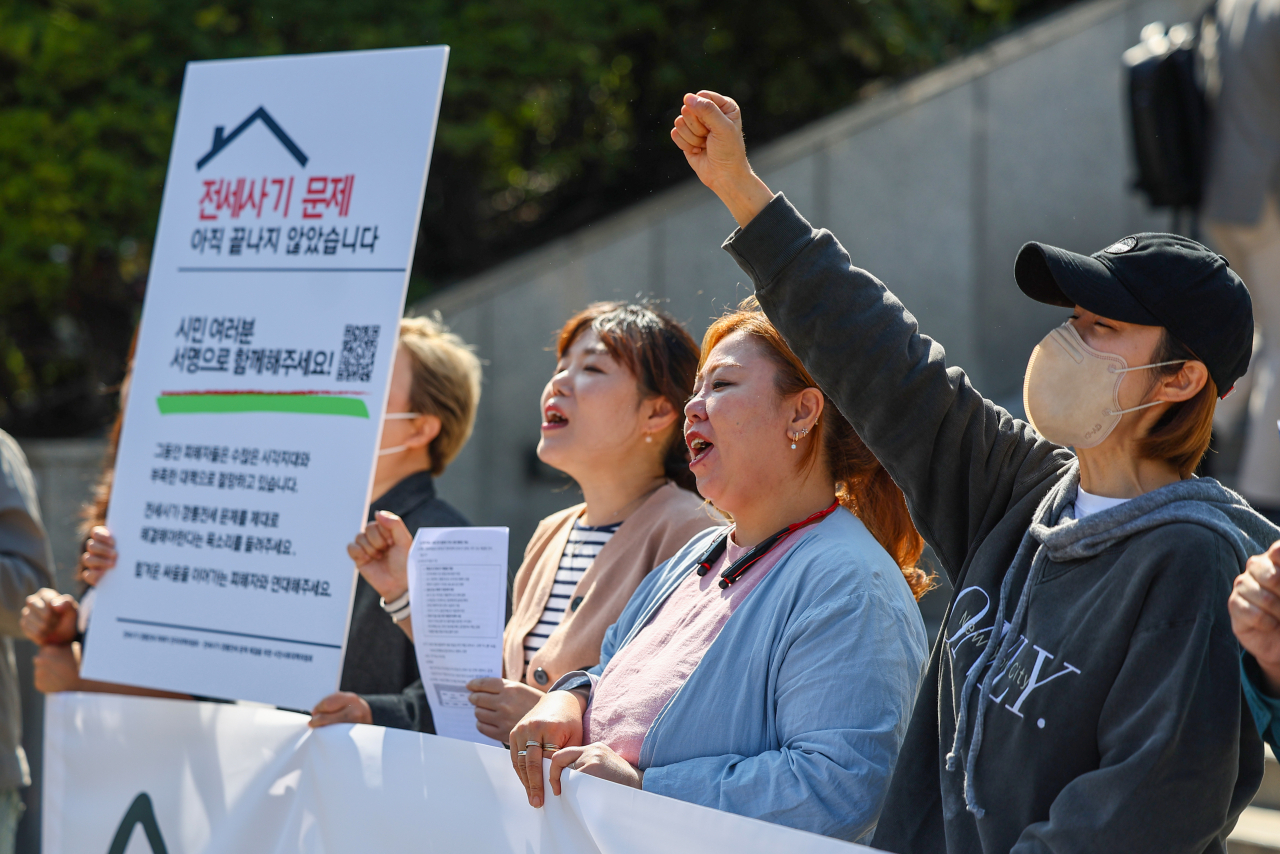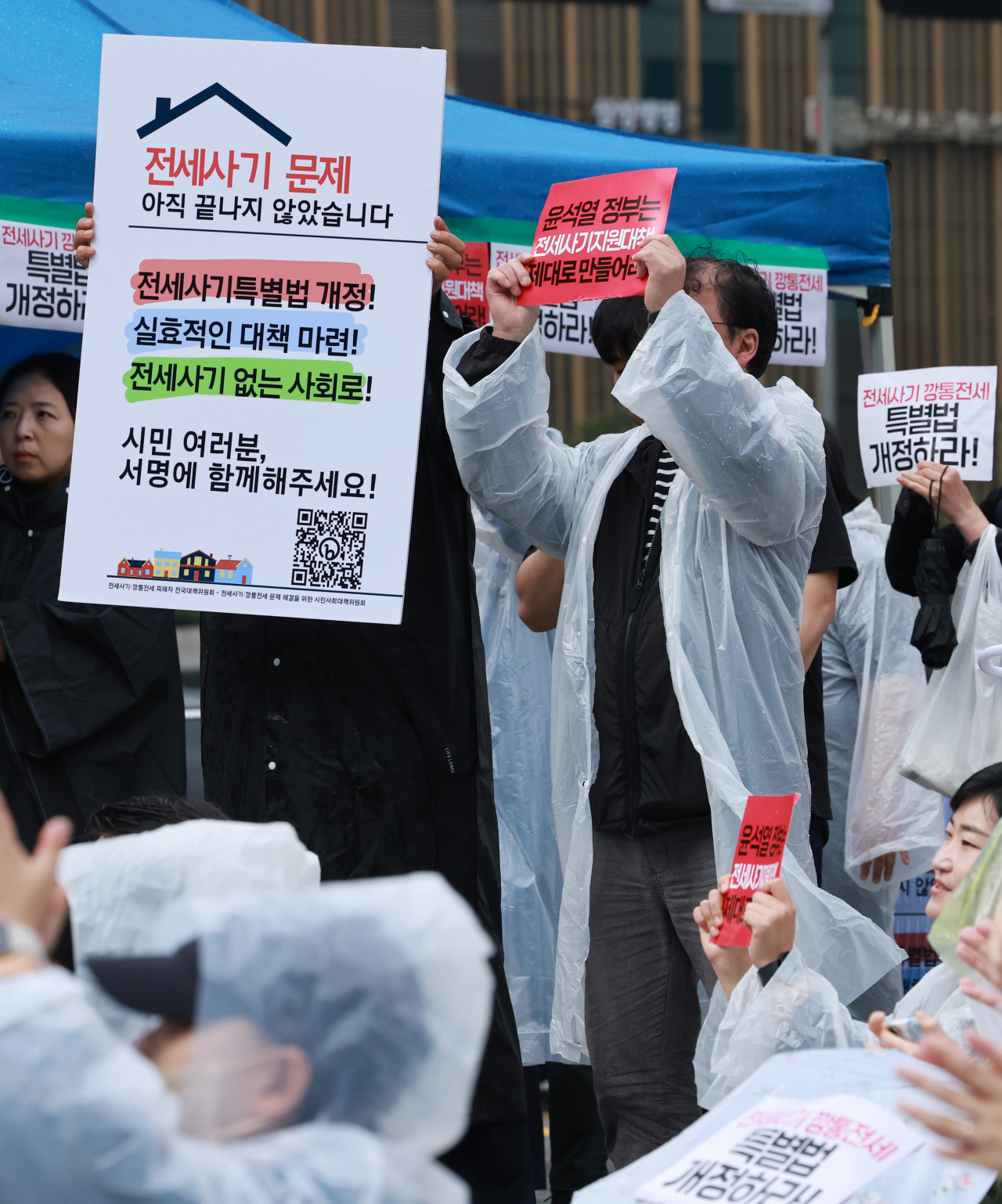Jeonse scams cause W510b in losses, with less than 25% recovered: lawmaker
Legislation to freeze scammers' assets before a court decision still pending
By Son Ji-hyoungPublished : Oct. 16, 2023 - 14:40

Sophisticated rental housing scams in South Korea incurred over 510 billion won ($376.5 million) in damages from January to July this year, with less than 25 percent of the damages retrieved, data showed Monday.
According to police data compiled by Rep. Jeon Bong-min, a lawmaker of the ruling People Power Party, the financial loss that 4,481 rental housing fraud victims across the nation suffered amounted to 510.5 billion won during the January-July period. The number of victims rose eightfold, while the financial damages jumped fivefold, compared with the yearly figure in 2022, according to Jeon.
The amount of money the country's law enforcement was able to retrieve from scammers, however, came to 115.3 billion won from January to August, or 22.6 percent of the damages incurred during the January-July period. In 2022, only 0.6 percent of damages were confiscated from fraudsters, according to Jeon.
The figures do not include the recent high-profile rental housing fraud case the previous week in Suwon, Gyeonggi Province, to which the authorities estimate that up to 760 people might have fallen victim. As of Saturday, up to 18 billion won in damages were reported to the police in 131 cases.
First-time lawmaker Jeon blamed the lack of legislation for the law enforcement's failure to confiscate any available properties of the scammers, who exploited loopholes in South Korea's unique rental housing system called "jeonse," as soon as the investigation started targeting them.
He called for the swift passage of the revision of the Act On Special Cases Concerning the Confiscation and Return Of Property Acquired Through Corrupt Practices, which he proposed in April, to allow law enforcement to collect or freeze scammers' assets so that they cannot dispose of a specific property until after they get a court mandate to return the money to victims.
Korean courts have sentenced scammers up to 10 years of imprisonment as criminal punishment, but there are flaws in retrieving jeonse scammers' assets before they are indicted because the law does not recognize their gains through housing rental scams as ones acquired through corrupt practices, according to Jeon.

Under a typical two-year jeonse contract, a tenant pays a lump sum of money -- often the tenant's life savings plus bank loans or other borrowings -- to the landlord. The lump sum is returned to tenants upon the term expiration.
But the popular house rental plan for Koreans -- a go-to alternative to an ordinary monthly rental because lessees often find it more affordable to pay loan interest to banks instead of monthly fees to landlords -- has now been plagued by groups of scammers.
These groups are often comprised of a buy-to-let property investor, a figurehead disguised as a normal landlord, a document forger for loan approval, a realty broker and an appraisal officer.
They work together to take a lump sum from tenants, which they refuse to return. Instead, they default on the debt, claiming they do not have deposit money left to return. The property then comes under the control of the debtors, who have priority over tenants in debt claims. Then, the victimized tenant would be forced to leave the house without having their deposits -- or life savings -- returned.
In Korea, a Special Act on Jeonse Fraud went into effect in June to allow victims to get compensated for what was supposed to be their jeonse deposit. As of Sept. 20, 6,063 people have been recognized as victims of jeonse fraud.
But a poll conducted by the Korea Center for City and Environment Research revealed on Wednesday that of 1,490 households who were scammed, 42.8 percent were recognized as victims eligible for state support, with another 21.2 percent pending approval for support.
Of 1,398 respondents who could not move out of their houses used for fraudulent contracts, 25.8 percent said they faced the threat of eviction.



















